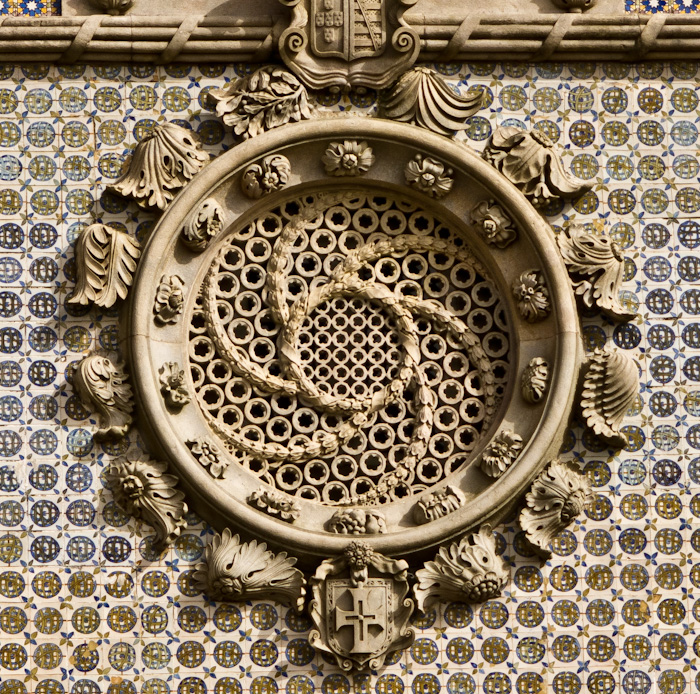
Journey to the Center of the Flat Earth
by William Highsmith

“What ended your boycott of your own mind?” said Professor Liedenbrock.
Axel’s face reddened. “A science fiction novel, Uncle.”
“Yes, but what captured your attention? Naughty pictures?”
“No, Uncle, I went to your favorite antiquarian bookseller for a birthday gift recommendation. He’d found an unpublished signed manuscript that intrigued him. The central figures in the story share our surname.”
“I prefer reading mineralogy, but whatever animates your brain.” Professor Liedenbrock scratched his muttonchops. “What other coincidences did he find? He knows what I like.”
“Your interests in mineralogy, geology, and ancient languages—”
“May I have a look?” The professor extracted the manuscript from his nephew’s hands before an answer was given. He looked at it for a moment and turned ashen. “I should be done with this by morning.”
#
Axel awoke the next morning expecting a volley of complaints from his early-rising uncle about the lack of Schwarzbrot on his plate and coffee in his mug. However, the professor was still bent over his writing desk in the drawing room. Only the brilliant morning window light evicted him from his chair.
“What great fortune I’ve had,” said Professor Liedenbrock.
“That you didn’t wake up dead this morning?” Axel smiled at his patented joke.
“That you found this manuscript and I realized its value. A splendid combination.”
“You and I, Uncle?”
“Insight and dumb luck.”
Axel needn’t guess which of them pinned his fate on dumb luck. “So glad to be of service.”
“Begin travel arrangements for the two of us.”
Axel’s face looked like he’d bitten into bad pork. “Go somewhere? Where? When?”
“Iceland, of course. This weekend.”
“You’re pulling my chain, right?”
“A repulsive phrase, but no, we’ll depart from Hamburg-Fuhlsbüttel Airport. Please get the house in order. I have research to do and must consider further a coded message in the manuscript.” Professor Liedenbrock thought for a moment. “It is a mandate for us, that document you found, bordering on a prophecy.”
“The novel I bought?” said Axel.
“It may seem like a novel to you, but it’s a scientific journal. My great great grandfather’s long-lost journal, Journey to the Center of the Earth. He famously wrote his research findings in narrative form, rather than the stuffy manner of his time. Unfortunately, he was tainted by the round-earth nonsense of those days.” The professor clapped his hands. “A great day this is, Axel.”
Axel was speechless. His uncle hurried off to his offices at the university, showing no evidence of his sleepless night.
Axel rarely strayed more than a few kilometers from his uncle’s home, and then only to buy provisions and equipment he needed to keep his uncle’s estate running smoothly.
He rued the prospects of a journey to Iceland. However, he saw an opportunity to increase the esteem his uncle held for him, from zero to some positive figure. His uncle hadn’t deciphered the code he mentioned, since he had to further consider it, so Axel decided to undertake that task.
Axel found a page with runic characters and marginalia in his uncle’s hand. He read it and shook his head. How did Uncle know the runes were enciphered with a code from rough Latin plaintext?
After grumbling awhile, Axel decided that enciphered runes were merely eccentric characters. He spent the rest of the day assaulting the code, unprofitably. He was resting from that effort when the professor returned home.
“What are you doing, Axel? Something useful?”
“Furthering your cause, I hope, by breaking the runic code.”
“I appreciate your effort immensely.”
Axel smiled. “Thank you. I must admit I’m struggling a bit.”
“Then I suggest you read ahead a few pages. The old fellow decoded the message so that his readers would not have to suffer that difficulty. Have you booked the flight?”
Axel’s murderous contemplations consumed him for a moment. “Flight?...Oh, I have a few questions about it first before—”
“Take the least-expensive flight,” said Professor Liedenbrock. “Everyone’s suffering economically because of the cylindrical warming scare. The public reckons their bank accounts will drop in dribs and drabs as the Great Ice Wall around the earth melts and the ocean water floats off into space. One Deutsche mark per ten liters of sea water into space, I suppose.” Professor Liedenbrock laughed. “They can’t imagine the scope of the cylindrical panic that would occur if the ice wall failed.”
Axel’s eyes widened at that blunt assessment. “They’re ignorant. The ice wall around the earth continues infinitely, doesn’t it?”
“Certainly not. The Great Plane is infinite. Earth is a finite cylinder upon that table surrounded by the Great Ice Wall—”
“But—”
“We at the university believe we’ll survive cylindrical warming, if we’re correct that the ice wall covers an unbroken mountain range around the earth’s boundary—what round-earthers once called Antarctica.” He chuckled. “They reckoned it a continent with a magnetic pole. They didn’t understand the near-field distortion to their instruments of Tesla waves.”
“Why theorize?” asked Axel. “Go examine the wall.”
“Don’t be ridiculous. It’s not possible to continue in a straight line long enough to reach the ice wall. It’s been tried and the effort always ends in circumnavigation. The planetary Tesla fields are so strong there, that they interfere with navigation. So—”
“Never mind. My head hurts, suddenly. I’ll book the flight. Do you need your usual travel kit?”
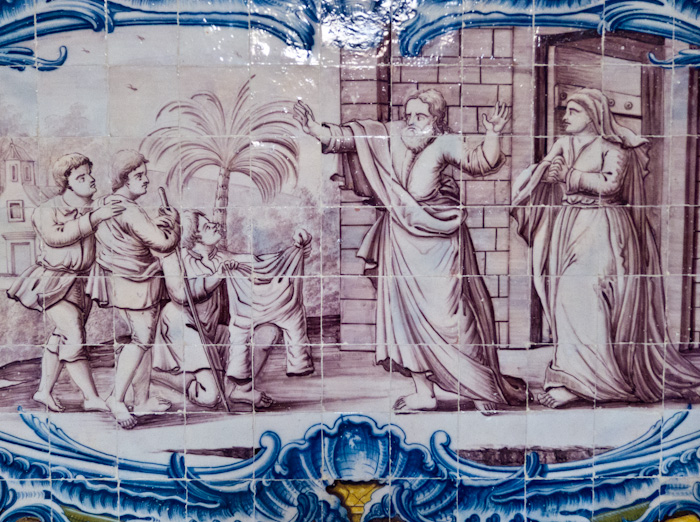
“Read the translated passage on which you worked so diligently and pointlessly. That will answer your question. I bookmarked it.”
Axel read the page.
Descend, bold traveler, into the crater of Snæfellsjökull, which the shadow of Scartaris touches before the Kalends of July, and you will attain the center of the earth; which I have done.
Axel rolled his eyes. “No wonder I couldn’t translate it. I don’t even understand the translation.”
“My delightful benighted nephew, we’re going volcano-diving to the interior of the earth, where an Icelandic alchemist and our namesakes have already been. But we’ll go about it differently. We have benefit of their record of successes and failures. We’ll embrace the former and avoid the later.”
“Makes sense.”
Liedenbrock tapped his temple. “As surely as the solar disk compasses around the earth’s central pole, we are mandated to reshape our view of the world.”
The flight from Hamburg to Reykjavik was rough for homebody Axel, who panted during tram rides. He’d left a few fingernail marks on his uncle’s arm.
Once in town, the scientist-adventurers called the first guide listed in the Reykjavik phonebook for their trek to the Snæfellsjökull volcano, Mr. Bjelke.
“Are you a tourist guide, sir,” said Professor Liedenbrock. “I’m a Hamburger in need of guidance.”
“I...don’t know what you mean by that, Sir,” said Mr. Bjelke.
“I’ve just arrived from Hamburg and—”
“Ah! Now I understand. Are you well-funded, sir?”
“Comfortably.”
“Then I am a tourist guide. Where would you like to go? National Gallery? Blue Lagoon geothermal spa?”
“To Snæfellsjökull,” said Professor Liedenbrock. “We intend to explore one of its craters.”
“How well did you say you were funded?”
#
Since the United Kingdom blocked any view of Iceland from the German coast, Professor Liedenbrock had considered a day trip to a Danish university’s coastal telescope facility prior to the Iceland journey, but the weather had been poor. So he took a small but excellent telescope to Iceland to view the volcano from his hotel. The volcano was only 120 kilometers away, with no intervening mountain ranges or poor weather, so the viewing was clear from his fourth floor room.
Distance viewing was his hobby. On one spectacular winter day, he’d seen Nags Head, North Carolina from Lisbon. If he’d had access to the university’s Samuel Rowbotham Telescope, he might have spied a bikini or two.
“That’s the object of our quest,” said Liedenbrock, inviting Axel to peer through the telescope.
Axel looked a long minute. “A stunning view. I’d enjoy snapping a few pictures from a sane distance, but given a choice, I’d rather not leap blindly into its bowels to be burnt to cinders.”
“You’re as dramatic as a youth,” said the professor. “Its volcanic activity has long ceased, and we’ll not repeat our predecessors’ mistakes.”
“It seems there are ample mistakes to be made that were not demonstrated by our predecessors. Would you relish the trip, Uncle, if devoured by a prehistoric beast or clubbed to death by a prehistoric giant of a man, rather than rocketing from the fiery throat of the volcano, as happened to our relatives?”
“I would choose none of your false alternatives. I’d step where no man has trodden before, leave my footprints behind, bring home scholarly impressions of the interior of the earth, and spend my remaining days writing my findings and lecturing in lofty places.”
“I’d be happy to wheel you around those lofty places should malign prehistoric beasts snack on your legs.”
Back in the hotel lobby, the adventurer-scientist and adventurer-do-boy planned their next day’s journey. Master guide Hans Bjelke helped them provision their trip from local merchants to avoid paying foreign-devil taxes. Top on the list was water, as that was a major source of upset during the first expedition.
Professor Liedenbrock insisted upon a frontal assault of the volcano. But the burly guards at the Snæfellsjökull public park disapproved of tourists entering its crater, even those with a historical license. Mr. Bjelke became indispensable, finding entrance by less-traveled routes. When the trio first entered the cavern and smelled the gaseous atmosphere, they knew their adventure had begun.
Professor Liedenbrock directed Mr. Bjelke and Axel to make a temporary camp while he consulted his notes.
“We shall conquer nature as Alexander the Great conquered Persia.” The professor felt emboldened, from the start of the expedition or from volcanic vapors. He patted his notes as if they were Xenophon’s. He craved finding exotic new minerals for his vast collection and researches, and answers concerning a plaguing mystery from the dawn of humanity—the thickness of the earth’s cylinder.
Some thought the earth no more than one hundred kilometers thick, while others thought that estimate tenfold shy. Even more exciting was discerning what lay beneath the earth. Dark matter? The dark sun and dark moon? A great void?
The professor posited that there must be a dark pole that countered the magnetic pole at the center of the surface of the earth. He had found that if something was positive in some sense then necessarily there was something negative to counter it.
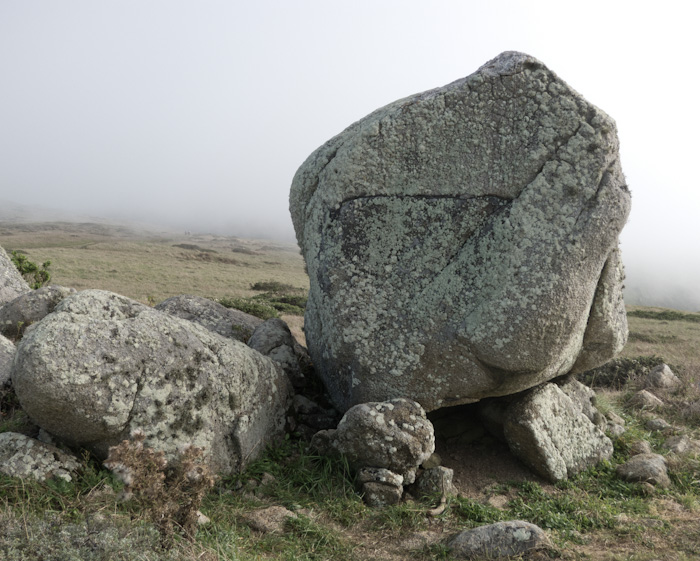
While Mr. Bjelke competently navigated Icelandic society and the countryside, he had no special advantage within a volcano other than his robust Icelandic physique. Axel wandered around the expedition’s starting point scratching his chin and sighing extravagantly.
“What?” said Professor Liedenbrock, in a commanding voice.
“I question your plan of attack.” Axel flinched.
“I plan to veer from our predecessors’ mistakes so as not to repeat them. Doesn’t that make sense?”
“No,” said Axel, flatly.
“I’m intrigued. Please explain.”
Axel coughed. “We should follow their path, as troubled as it was, armed with foreknowledge of their results, making only minor changes as needed to avoid disaster. Otherwise, once we have veered from their path, we’d make a new go of it with no more information than they had.”
Professor Liedenbrock stood up from the rock on which he rested and grimaced. “That is completely and utterly...sensible. Very good, Axel.”
Axel’s jaw dropped a disturbing distance. “Thank you, Uncle.”
The explorers made good time since they hadn’t faced any decisions, other than continuing down the lone path or running away.
“This appears to be the chamber filled with combustible gas that will or would plague us,” said Professor Liedenbrock. “Take care. Fortunately, we have plenty of drinking water. Thank Mr. Bjelke for the water that he alone bears, for without it, you will or would suffer near to death, Axel.”
“Thank you, Mr. Bjelke. I have back troubles.”
Mr. Bjelke mumbled something awful-sounding, in Old Norse.
“And take care not to separate yourself from us,” said Liedenbrock. “This evidently is where you will or would become lost, Axel...Axel?...Axel!”
“I’m observing nature’s call, okay?” said Axel, stepping from behind a lava boulder.
After a day and a half of slogging deep into the bowels of the earth, the expedition came upon a three-way branch in the path, which caused no little concern. Axel, having the youngest eyesight and sense of smell, assessed them.
“This one luminesces slightly while the others do not, suggesting it leads to the foretold illuminated cavern and underground sea. We will or would have an unpleasant time of it crossing the sea on a rustic raft whereupon we will or would—”
“Let’s stop saying will or would,” said Professor Liedenbrock. “It’s annoying.”
“—whereupon we might find on the far shore strange prehistoric fauna and flora.” Axel sniffed the second passage. “This one has a milder but similar scent of the sea.”
“Perhaps this path leads to the far shore of the same sea, relieving us of the need of seafaring in lightning storms.”
Axel nodded and sniffed the third passage. “This one is rather neutral, for a volcano, but has a slight suggestion of...what is it?...Oh, yes, a gun range. Explosives.”
“This might lead directly to the alchemist’s mark by the caved-in granite wall,” said Professor Liedenbrock. “There they tried to blast through the wall, but instead, expelled themselves from Earth’s bowels via the volcano at Stromboli, Italy, ending their expedition in academic failure.”
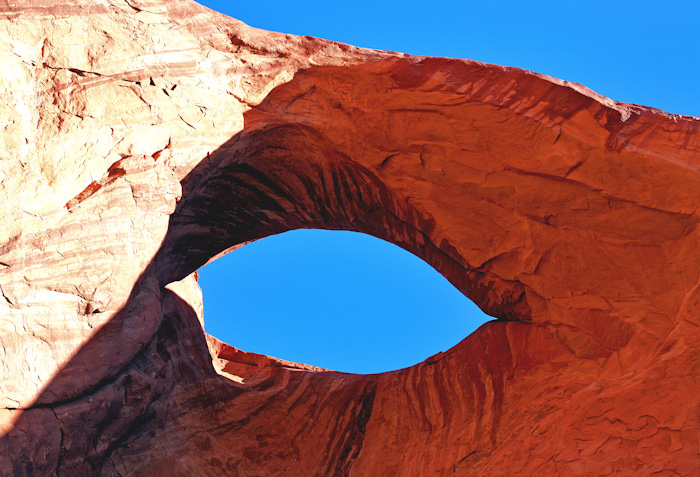
Mr. Bjelke moaned. “Why am I here? To tote water like a horse and listen to this nonsense?”
“We will put you to good use in time,” said Professor Liedenbrock. “I suggest we take the third passage and avoid rough seas and prehistoric creatures.”
“But we only guess that this leads to their terminal point,” said Axel. “Why take the risk?”
“Would you prefer crossing a sea in a log raft during a lightning storm?”
Axel had no answer. “Perhaps we’ll rejoin the true path at a safer station.”
Within minutes, the luminescence of the communicating chamber they had left was gone and they had to rely on their battery-powered lanterns. Perhaps that was why the original expedition had chosen the first passage, surmised Axel. They had no modern batteries.
In time, the three souls saw a dim light ahead and their hope surged as the brightness increased. The cavern at the end of the tunnel showed unmistakable evidence of earlier human visitation. The walls were stained with smoke from an explosion, and rubble littered the cavern floor.
“Here are the marks made by the Icelandic alchemist, Arne Saknussemm, that frustrated our predecessors,” said Professor Liedenbrock. “Without a doubt, we have come to the cusp of their ill-fated expedition with little travail.”
“And we face the same granite wall,” said Axel. “It's battered from their assault, but still stands impressively. What will we do?”
“The same as they did, but more competently,” said the professor, “as I am a modern geologist.” He examined the wall for an hour, tapping various places with a hammer. “I believe they would’ve fared better had they applied the charge here.” He pointed at a small fissure three meters from their predecessor’s chosen spot. “Less explosives in a more favorable location is the ticket. And this arrangement is less likely to open a fissure through the underside of the earth.”
“Is that possible?” asked Axel.
“It’s unlikely, but no one knows the thickness of the earth. That will inform my decision about the quantity of explosives to use.”
Mr. Bjelke assembled the bomb, happy to be of use, apart from bearing burdens. Professor Liedenbrock and Axel assembled an extended fuse that afforded them about a two-hour lead-time. They figured that with a little rest, they could double-time it back to the communicating chamber in that time since they’d leave their backpacks behind.
Professor Liedenbrock prescribed the exact position for the bomb. Mr. Bjelke installed it and attached the long fuse. The men took one hour’s rest and readied themselves.
“It’s time to do some science,” said the professor. He checked his watch as Mr. Bjelke lit the fuse. Then off they went. Mr. Bjelke set the pace, carrying the lantern. They arrived ten minutes before the expected detonation time.
“Expect to be jostled, and watch for flying stones,” said Professor Liedenbrock.
The men paced in circles, listening for the explosion, avoiding the mouths of the three passages.
A minor quake with its attending deep rumble first announced the explosion. Axel did not like the rubbery feel of what should be solid rock. Then a sonorous wail through the tunnels blasted the adventurers’ ears.
“Holy cow!” said Axel.
The cavern quaked, throwing the men to the floor. Axel looked to his prostrate uncle for reassurance.
“As expected.” The professor tried to stand while the cavern reverberated. Then a squall assaulted their ears, like from an aerie of a thousand eagles. The confidence on the professor’s face waned.
The cavern redoubled its quavering, opening an old chimney to the crater above them. Three dark plumes poured out the passages and intertwined as they jetted up the chimney. The noise immobilized the men while they were pelted with dust and debris.
“Is this right?” yelled Axel, during a lull in the noise.
Professor Liedenbrock murmured a deep sigh. “I now have my answer. The earth is not very thick at all. We opened a fissure into the dark world beneath the earth, venting dark matter into the world above.”
“That sounds bad,” said Axel. He waited for the professor’s solution to the problem. He always had a solution.
Professor Liedenbrock shrugged.
The screeching of the escaping plumes from beneath the earth ended, raising everyone’s hope a measure.
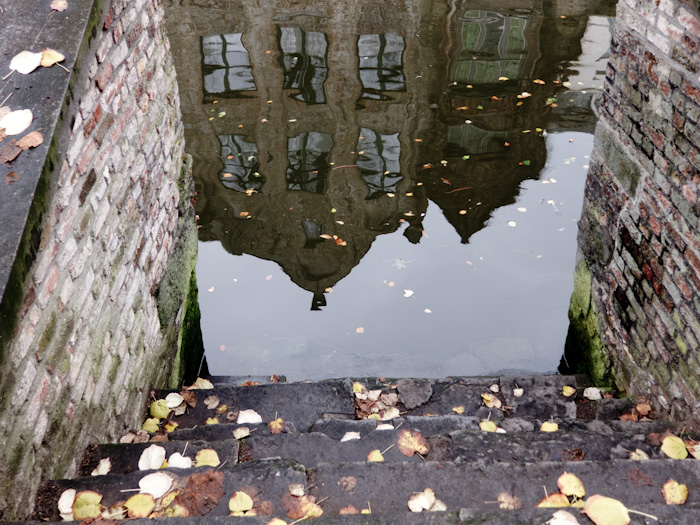
The Author regarded his creation, which lay on his escritoire accusingly. “Mais, c'est horrible.”
He took the flat world into his hands, examined it critically and shook his head. He reached for his ink pen, accidentally knocking over the ink bottle. The stain spread across the paper.
“Merde! J’ai renverser mon encrier. Je recommmence.”
The volcano’s chamber went dark in an instant. The adventurers looked up the chimney only to be drenched with a pitch-black liquid.
“Ew! What’s that?”
The professor, more practical and curious than his lethargic nephew, took a draught of it with his finger. “India ink, I’d say.”
Then their ears were assaulted by a clamor echoing from above, forcing them to shield their ears for a few seconds.
“What was what?” said Mr. Bjelke.
“A Frenchman, apparently,” was the professor’s resigned answer. He looked up toward the noise. “He’s rather pissed about his ink and will start anew.” The professor brushed away the ink that had pooled on the tip if his nose.
The chamber went dark again. The adventurers looked up the chimney.
“It’s a face the size of the sun,” said Axel. “But much closer.”
“Madness,” said the professor. He looked at his nephew, blinked thrice and looked again. The boy was thinning before his eyes. The whole cavern was reshaping itself as if imploding silently. Professor Liedenbrock looked at his own hands, which were now a tenth their former thickness.
The Author formed the flat world in his hands into a crude inky ball and tossed it into the trash basket.
Deep in the trash basket, the professor could see a bit of his crumpled nephew over a paper ridge. “Does that hurt, Axel? Your neck is rather bent.”
“I don’t feel a thing. You’re a bit twisted yourself, Uncle. You know what I mean.”
“I know.”
“Never mind the guide-for-hire.” Mr. Bjelke’s voice was muffled. “He doesn’t matter.”
“Sorry,” said the professor. “Where are you?”
“I’m not sure, but apparently I’m doomed for eternity to stare at your feet.”
“At least someone can see them.”
“What happened, Uncle?”
“Somehow, we’ve upset the balance between the upper and lower worlds and suffered a permutation along the way, so that—”
Mr. Bjelke huffed. “You’re winging it, right, Professor?”
Their world suddenly suffered a vertical and then horizontal displacement, followed by a Great Upending.
“I’m no longer staring at your feet, professor. I’m now mated to a giant banana peel. Thank you so much.”
The Author discarded his old world, for it was corrupt and stained. He then made a new world. When he saw the new world he had made, he was pleased, for it was good. And round.
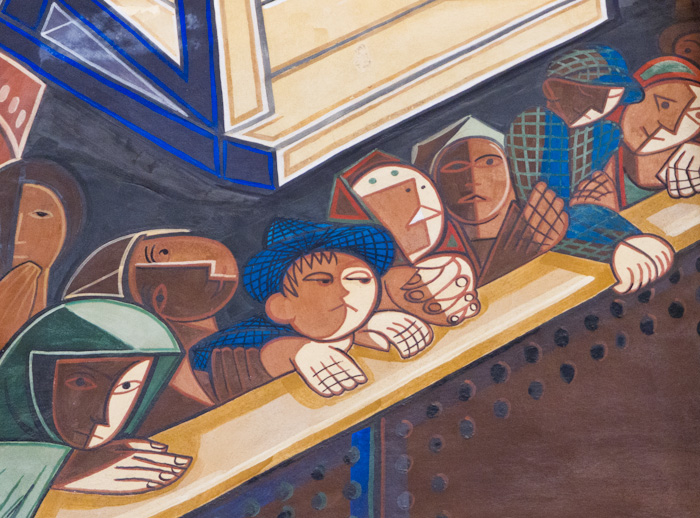
“What ended your boycott of your own mind?” said Professor Liedenbrock. He sat in his easy chair.
Axel’s face reddened. “A novel, Uncle, Journey to the Center of the Earth.”
Professor Liedenbrock smiled. “They thought the world was flat then. What about that book caught your attention?”
About the Author
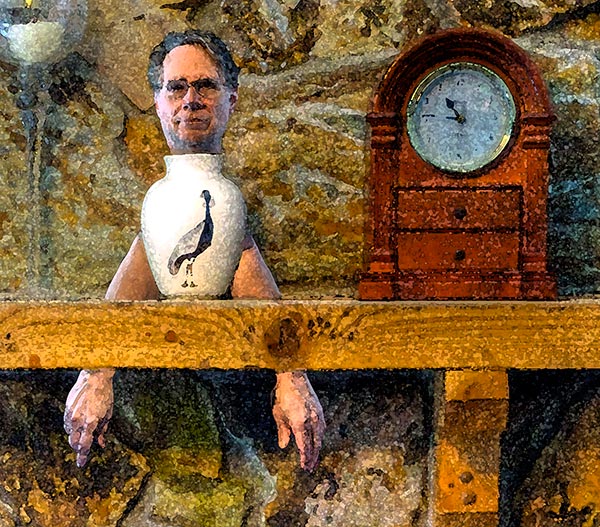
William Highsmith has published short fiction in Flash Fiction Online, where he’s also a slush reader. In addition, he’s published in Abyss, Apex, and three anthologies: the Warrior Wisewoman 3, Thoughtcrime Experiments, and Butterfly Affects. He has a short article in Writer’s Digest on flash fiction and authored many technical publications in the telecom industry, where he’s a software engineer and tech writer, although he avoids working on microwave oven manuals—don’t ask. And he’s a photographer.
Post a comment on this story!